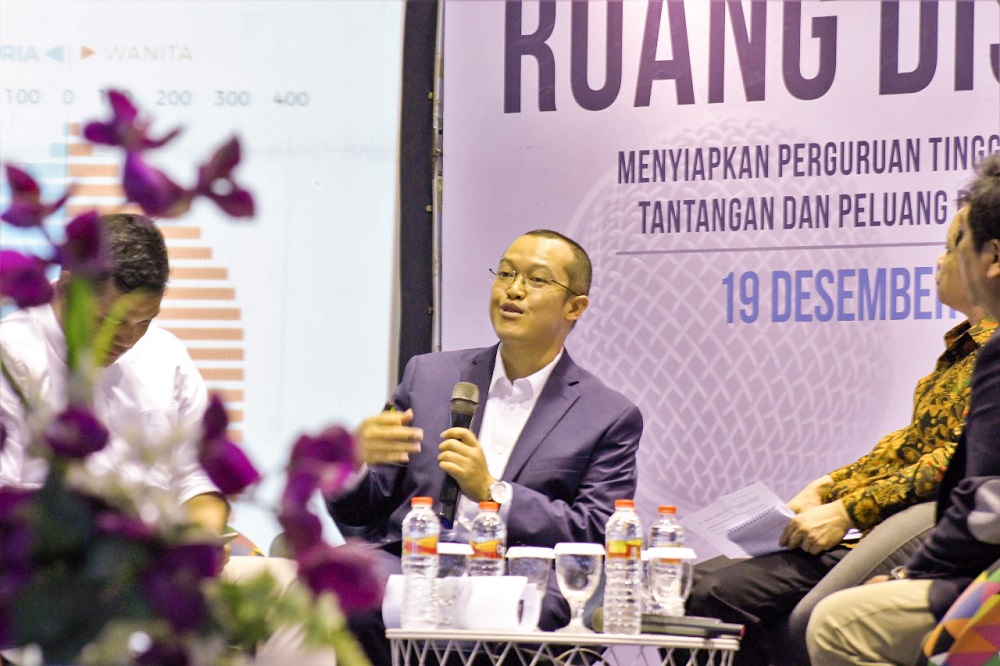UNAIR NEWS – Vocational education is one of ways of producing skilled and quality human resources that are needed by the industrial world. The Ministry of Research, Technology and Higher Education is intensively designing various policies for revitalizing vocational education to harmonize vocational education curricula to meet the industrial needs and the challenges of Industrial Revolution 4.0. Vocational education is expected to produce graduates with various competency certificates.
The discussion entitled “Preparing Higher Education to See Challenges and Opportunities in the Age of Disruption” was held at Lounge PT Jawa Post Koran, Graha Pena Building, Surabaya, on Wednesday, December 19. The event was attended by Director General Institutionof Science, Technology and Higher Education. There were Prof. Badri Munir Sukoco, SE., MBA., Ph.D., Head of UNAIR Planning and Development Board, Djwantoro Hardjito, Rector of Petra Christian University, and Akhyari Hananto Founder of GNFI & SEASIA, with moderator Suko Widodo from Universitas Airlangga.
On that occasion Prof. Badri said that improving the competitiveness of Indonesia’s youth is very important. At the moment, GPA value is not enough for students. In the professional world, competition for jobs is very tight. Students need to have creativity to create new economy that can be provided through vocational education.
“The value of GPA alone is not enough to compete for jobs, but it needs creativity to create a new economy,” he said.
Meanwhile, Director General for Institution from Ministry of Science, Technology and Higher Education, Dr. Ir. Patdono Suwignjo, M.Eng.Sc., said that vocational education in Indonesia has three challenges to be solved. The first is the ‘Mindset’ of the community who could not put vocational education as a top priority in continuing education. Second is the lack of optimal involvement of industrial world in the development of vocational education. Third, private universities do not want to make polytechnics, so the number of vocational education is still limited and dominated by state universities.
“So far, parents prefer to send their children to university rather than polytechnics,” he added.
Patdono said that public awareness should be improved on vocational schools. Moreover, to increase public interest, efforts should be made to make the polytechnics interesting choice.
Vocational education is believed to be able to improve the competitiveness of Indonesian people in the professional world. If university education gives birth to certified academics, vocational education gives birth to certified skilled workers who certainly also have a diploma. It adds the value needed by the industry.
“Vocational education such as polytechnics does not only provide diplomas because the diploma is not suitable for applying for jobs in the industry, (whereas) what really needed are certificates of competence issued by credible institutions,” he concluded.
Author: M. Najib Rahman
Editor: Feri Fenoria





